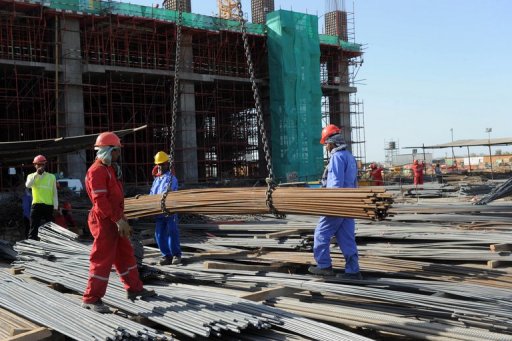LONDON: The Turkish lira rallied half a percent on Tuesday while bond yields slipped after the central bank left interest rates unchanged as expected, and broader emerging stocks and currencies were rangebound as investors digested a range of economic data.
Turkey’s central bank left rates on hold at 6.25 percent as expected after shocking markets with two consecutive rate cuts in December and January.
That fuelled a half percent jump in the lira against the dollar while bond yields eased slightly in relief.
"No news from the central bank of Turkey is actually very good news and the first reaction to the no-cut news was positive," said Luis Costa, head of CEEMEA fixed income and currency strategy at Citi.
But he said the recovery in the lira and bonds would be brief due to continuing inflation worries.
"Long-end (bond) guys are filled with relief as it looks like the central bank won’t cut rates any more. However my feeling is the market is already looking beyond the short end and we are tempted to price more inflation into the long end."
Markets have been volatile in recent weeks on expectations that Turkey could be in for a sharp inflation shock. Benchmark two-year yields were just off eight-month highs hit last week while the lira has fallen more than 3 percent this year.
"My bias is still bearish because of the combination of low interest rates and the high macro risks such as inflation and current account deficit," said HSBC strategist Murat Toprak.
Turkey’s current account gap surged 132 percent to a record high $7.59 billion in December, recent data showed, highlighting the dangers posed by rapid economic growth, risks that many say are being exacerbated by unorthodox monetary policy.
Turkey’s two-year/10-year yield curve is around 125 bps steep, while yields have risen more than 100 bps this year, showing investors are pricing in more hefty rate rises further down the line.
Emerging stocks lackluster; worries in Bahrain
Earlier, Asian markets received a boost from Chinese data that showed annual inflation in January at a lower-than-expected 4.9 percent, soothing some worries about the potential for aggressive Chinese policy tightening.
But the momentum was not sustained as emerging stocks stayed flat amid a below-forecast rise in German business sentiment as reported by the ZEW think-tank. Euro zone fourth quarter GDP growth failed to meet expectations for an acceleration and German growth also disappointed.
"There is a lack of direction, mainly because of all this data we are seeing," Toprak noted.
Eastern European stock markets were also flat to slightly negative despite more gains in the FTSE100 index of top European stocks. Emerging equities therefore continue to underperform against developed world indexes, with losses of 4 percent year-to-date.
On currencies, news the Czech and Hungarian economies had grown modestly in the fourth quarter of 2010 fuelled a small rally in the forint and the Czech crown against the euro though both currencies soon pared gains.
Hungarian inflation also was better than expected, helping bond yields down 2-10 basis points across the curve as the central bank is seen keeping rates on hold at its next meeting.
In the Middle East, Bahrain was the latest to see a sharp rise in debt insurance costs, its 5-year credit default swaps jumping 12 basis points to 255 bps, according to Markit data. This is an 18-month high.
Investors are growing increasingly concerned about protests in the majority Shiite country which is ruled by a Sunni royal house. Two protestors have been killed in clashes with police that follow upheaval in Egypt and Tunisia.
Egyptian CDS rose 4 bps. Stock and currency markets in Cairo were closed but some offshore-listed GDRs of Egyptian companies rose strongly with Orascom rising 1.7 percent and Telecom Egypt surging 6 percent.
On global bond markets, yield spreads on emerging sovereign bonds narrowed 4 bps. Egypt’s share of the index also tightened 4 bps to 304 bps, a day after JPMorgan analysts raised it to neutral from underweight in their model portfolio.


